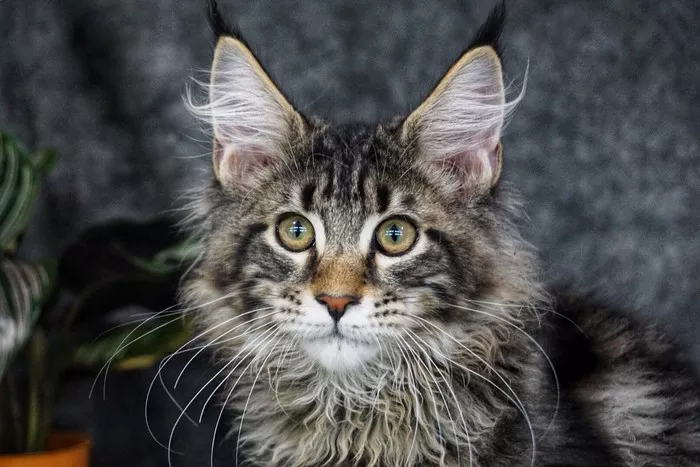Welcoming a kitten into your home is an exciting and rewarding experience, but it also comes with the responsibility of providing round-the-clock care and attention, particularly during the nighttime hours. Kittens, like human infants, have unique needs and behaviors that require special consideration, especially when it comes to nighttime routines and sleep patterns. In this comprehensive guide, we explore essential tips and strategies for ensuring the comfort, security, and well-being of your kittens during the night.
Understanding Kittens’ Nighttime Needs:
Before delving into specific nighttime care strategies, it’s important to understand the unique needs and behaviors of kittens during the nighttime hours. Unlike adult cats, kittens have higher energy levels and shorter attention spans, which can lead to restless behavior and increased activity, especially in the evening and early morning.
Additionally, kittens may experience separation anxiety when transitioning to a new environment, leading to vocalization, pacing, and seeking comfort from their caregivers. Providing a safe and comforting nighttime environment is essential for helping kittens feel secure and settled in their new surroundings.
Creating a Safe and Comfortable Sleeping Area:
One of the first steps in nighttime kitten care is establishing a designated sleeping area that is safe, comfortable, and conducive to restful sleep. A cozy bed or nest lined with soft blankets or bedding can provide kittens with a sense of security and warmth, mimicking the comfort of their mother’s nest.
Choose a quiet and secluded location away from noise and distractions, such as TVs or loud appliances, to minimize disturbances during the night. Consider placing the kitten’s sleeping area in a separate room or enclosed space where they can rest undisturbed.
Introducing a Comforting Bedtime Routine:
Just like human babies, kittens thrive on routine and predictability, especially when it comes to bedtime rituals. Establishing a consistent bedtime routine can help signal to your kitten that it’s time to wind down and prepare for sleep.
Start by engaging in calming activities such as gentle play or cuddling sessions in the evening to help your kitten expel excess energy and promote relaxation. Offer a small meal or snack before bedtime to satisfy hunger and prevent nighttime waking due to hunger pangs.
After feeding, engage in quiet, low-key activities such as grooming or gentle petting to help your kitten relax and unwind. Dimming the lights and creating a tranquil atmosphere can further signal to your kitten that it’s time to settle down for the night.
Managing Nighttime Vocalization and Behavior:
It’s not uncommon for kittens to vocalize or exhibit restless behavior during the night, particularly if they are adjusting to their new environment or experiencing separation anxiety. While some level of nighttime activity is normal, excessive vocalization or disruptive behavior may indicate underlying stress or discomfort.
If your kitten exhibits nighttime vocalization or restlessness, avoid responding with attention or reinforcement, as this may inadvertently reinforce the behavior. Instead, provide reassurance and comfort from a distance, such as by placing a familiar blanket or item of clothing with your scent near their sleeping area.
Additionally, consider incorporating enrichment activities and interactive toys into your kitten’s daytime routine to help stimulate their mind and body, reducing the likelihood of nighttime restlessness. Puzzle feeders, scratching posts, and interactive play sessions can provide mental and physical stimulation during the day, promoting calmer behavior at night.
Addressing Nighttime Potty Needs:
Like human infants, kittens may have nighttime potty needs that require attention and accommodation from their caregivers. Provide easy access to a litter box in close proximity to your kitten’s sleeping area to encourage proper elimination behavior during the night.
Consider placing a nightlight or low-level illumination near the litter box to guide your kitten in the dark and minimize accidents. Keep the litter box clean and odor-free, as kittens are more likely to avoid using a soiled or unpleasant litter box.
If your kitten experiences accidents or litter box aversion during the night, consult with your veterinarian to rule out any underlying medical issues or behavioral concerns. With patience and consistency, most kittens can be successfully trained to use the litter box during the night, promoting cleanliness and comfort for both the kitten and their caregivers.
Promoting Healthy Sleep Patterns:
Establishing healthy sleep patterns is essential for promoting your kitten’s overall health and well-being. While kittens may initially have irregular sleep-wake cycles, providing a consistent bedtime routine and environment can help regulate their internal clock and encourage restful sleep.
Avoid disrupting your kitten’s sleep with unnecessary disturbances or loud noises during the night. If you need to attend to your kitten’s nighttime needs, do so calmly and quietly to minimize disruption and encourage a swift return to sleep.
Encourage your kitten to settle down for the night by providing comforting cues such as soft bedding, soothing sounds, and gentle stroking or petting. Over time, your kitten will learn to associate these bedtime cues with sleep, promoting relaxation and restfulness during the night.
See Also: Kitten Supplies: Toys, Food & Accessories
Conclusion:
Providing nighttime care for kittens requires patience, dedication, and a deep understanding of their unique needs and behaviors. By creating a safe and comforting sleeping environment, establishing a consistent bedtime routine, and addressing any nighttime challenges or concerns with patience and compassion, you can ensure that your kitten enjoys restful sleep and wakes up refreshed and ready to embrace each new day.
As your kitten grows and matures, continue to monitor their nighttime behaviors and adjust your care routine accordingly to meet their evolving needs. With love, attention, and thoughtful guidance, you can foster a strong bond with your kitten and lay the foundation for a lifetime of companionship and happiness.



























